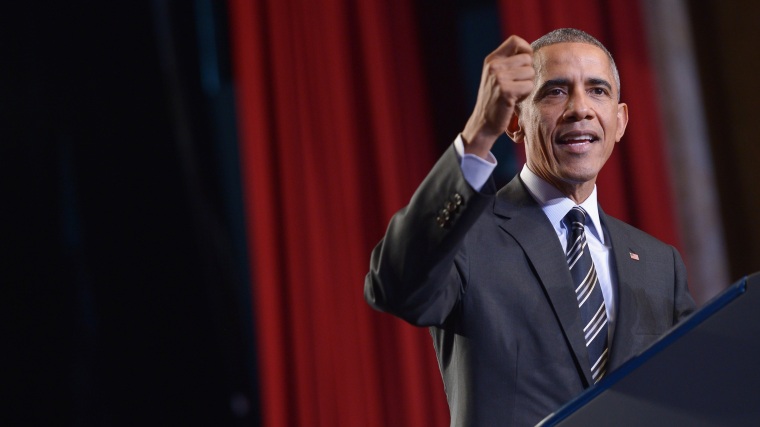Last week, before the new job numbers came out, Catherine Rampell made a very good point: "Unhappy with the economic recovery in the United States? Could be worse. Specifically, we could be literally any other country in the world that also just went through a major financial crisis."
It's smarter, then, to compare our economic recovery against other countries who dealt with similar circumstances. And on this front, as President Obama was eager to remind Americans in his weekly address, we're the envy of the world:
"America, we still have a lot of work to do together. But we do have real, tangible evidence of our progress. 10.9 million new jobs. 10 million more Americans with health insurance. Manufacturing has grown. Our deficits have shrunk. Our dependence on foreign oil is down. Clean energy is up. More young Americans are graduating from high school and earning college degrees than ever before. Over the last four years, this country has put more people back to work than Europe, Japan, and every advanced economy combined."
That last point is no small detail. In the aftermath of the crash, advanced economies around the globe rushed to respond, with many adopting competing solutions. Many chose the kind of austerity measures Republicans hoped to impose on Americans.
Fortunately for those who want to see the U.S. succeed, Republicans weren't in a position of power in 2009.
As a result, as Rachel noted on the show on Friday, American growth is "outperforming other economies." Indeed, one of the more striking aspects of the recent upswing in the domestic economy is that "the U.S. remains a standout as the rest of the world struggles."
After highlighting the latest jobs numbers late last week, I was surprised by the pushback from conservative readers eager to tell me there were hints of bad news, hiding amidst the good news, if one looks closely enough. It was, to be sure, odd to see quite so many people who seemed almost desperate to feel discouraged by the best American job market in 15 years. But more than that, their arguments were strikingly unpersuasive.
The results don't count, they said, because most of the jobs are part-time jobs. The problem with this argument is that it's plainly wrong: "[F]ewer people are getting stuck in part-time jobs. The number of people working part time because they can't find full-time work is at its lowest level since the recession (although it remains high by historical standards)."
OK, they said, but maybe the results don't count because wages aren't climbing. Wrong again: "[C]rucially, employers are paying workers more: Average weekly earnings rose 2.4 percent from a year earlier, their fastest pace in a year."
For now, let's put aside the fact that it's unseemly for Americans to be saddened by good news. Instead, I hope the political world will pause to realize that while our economic recovery hasn't been fast enough, and it would have been stronger had it not been for congressional Republicans taking capital out of the economy on purpose, we're still leading the world, creating job growth unseen in the United States since the 1990s, and unseen among advanced economies internationally.
